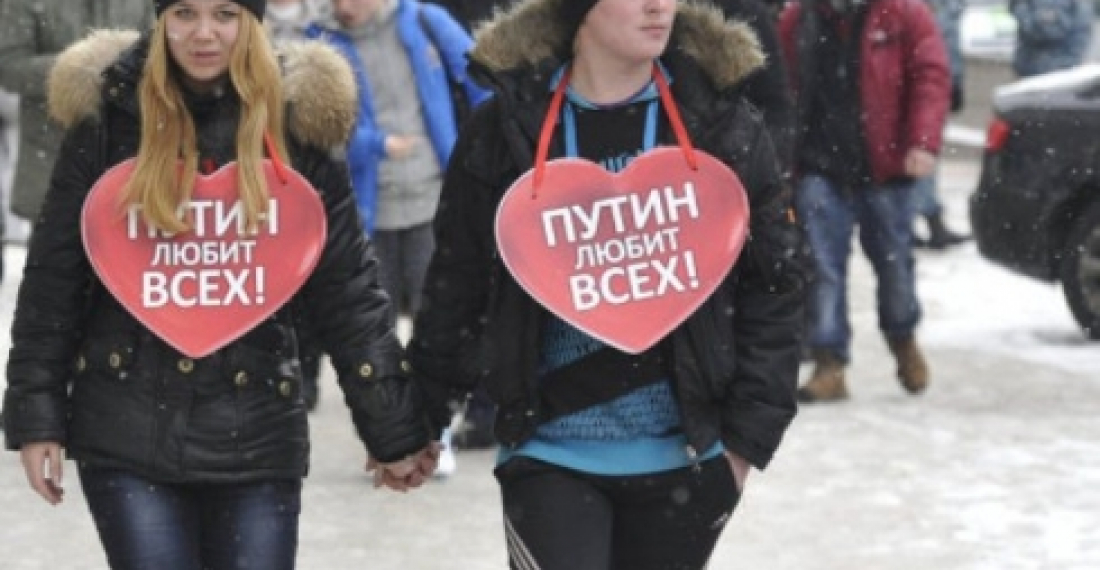On the eve of his expected return to the Presidency of Russia Vladimir Putin has published a wide ranging article on foreign policy in which he outlines his views on Russia's role in the world including a vision of a Europe stretching from the Atlantic to the Pacific.
With reference to Europe Putin wrote:
"Russia proposes moving toward the creation of a common economic and human space from the Atlantic to the Pacific Ocean - a community referred by Russian experts to as "the Union of Europe," which will strengthen Russia's potential and position in its economic pivot toward the "new Asia."
Against the background of the rise of China, India and other new economies, the financial and economic upheavals in Europe - formerly an oasis of stability and order - is particularly worrisome. The crisis that has struck the eurozone cannot but affect Russia's interests, especially if one considers that the EU is our major foreign economic and trade partner. Likewise, it is clear that the prospects of the entire global economic structure depend heavily on the state of affairs in Europe.
Russia is actively participating in the international effort to support the ailing European economies, and is consistently working with its partners to formulate collective decisions under the auspices of the IMF. Russia is not opposed in principle to direct financial assistance in some cases.
At the same time I believe that external financial injections can only partially solve the problem. A true solution will require energetic, system-wide measures. European leaders face the task of effecting large-scale transformations that will fundamentally change many financial and economic mechanisms to ensure genuine budget discipline. We have a stake in ensuring a strong EU, as envisioned by Germany and France. It is in our interests to realize the enormous potential of the Russia-EU partnership.
The current level of cooperation between Russia and the European Union does not correspond to current global challenges, above all making our shared continent more competitive. I propose again that we work toward creating a harmonious community of economies from Lisbon to Vladivostok, which will, in the future, evolve into a free trade zone and even more advanced forms of economic integration. The resulting common continental market would be worth trillions of euros. Does anyone doubt that this would be a wonderful development, and that it would meet the interests of both Russians and Europeans?
We must also consider more extensive cooperation in the energy sphere, up to and including the formation of a common European energy complex. The Nord Stream gas pipeline under the Baltic Sea and the South Stream pipeline under the Black Sea are important steps in that direction. These projects have the support of many governments and involve major European energy companies. Once the pipelines start operating at full capacity, Europe will have a reliable and flexible gas-supply system that does not depend on the political whims of any nation. This will strengthen the continent's energy security not only in form but in substance. This is particularly relevant in the light of the decision of some European states to reduce or renounce nuclear energy.
The Third Energy Package, backed by the European Commission and aimed at squeezing out integrated Russian companies, is frankly not conducive to stronger relations between Russia and the EU. Considering the growing instability of energy suppliers that could act as an alternative to Russia, the package aggravates the systemic risks to the European energy sector and scares away potential investors in new infrastructure projects. Many European politicians have been critical of the package in their talks with me. We should summon the courage to remove this obstacle to mutually beneficial cooperation.
I believe that genuine partnership between Russia and the European Union is impossible as long as there are barriers that impede human and economic contacts, first and foremost visa requirements. The abolition of visas would give powerful impetus to real integration between Russia and the EU, and would help expand cultural and business ties, especially between medium-sized and small businesses. The threat to Europeans from Russian economic migrants is largely imagined. Our people have opportunities to put their abilities and skills to use in their own country, and these opportunities are becoming ever more numerous.
In December 2011 we agreed with the EU on "joint steps" toward a visa-free regime. They can and should be taken without delay. We should continue to actively pursue this goal."
Commonspace.eu political editor in a comment said that "this is the latest in a series of articles aimed mainly at the domestic audience before the elections next Sunday. This article however is considerably more thoughtful then some of the previous ones and in it Putin has set out Russia's foreign policy agenda for the next decade. It reflects Russia's impatience and frustrations particularly with the US and Europe, but also its' hopes and dreams, and its determination to remain a "great power". In his article Putin does not make any reference to the so called "near abroad" presumably because he does not think these areas are "foreign". There are however some ominous remarks about the Baltic states that will not be welcomed in Talinn or Riga. The article also has a heavy dose of NGO bashing which has recently become a Putin hallmark. On the whole it will be interesting to see how much of the article will survive the election campaign to become Russian state policy once Putin is sworn back in as president in May".
The full article of Vladimir Putin is available on the web site of RIA-Novosti
source: commonspace.eu with Ria-Novosti
photo: Putin supporters on the streets of Moscow ahead of next Sunday's election (picture courtesy of Ria-Novosti)







